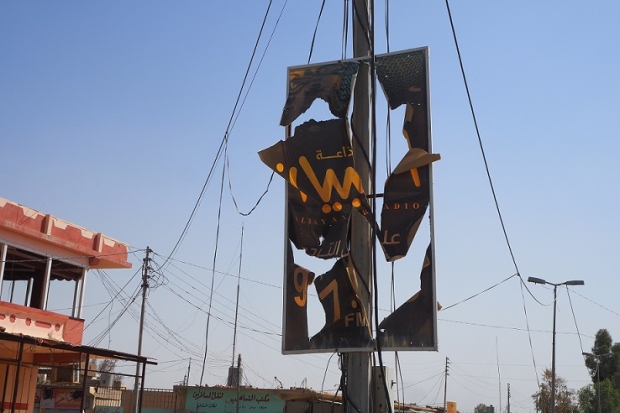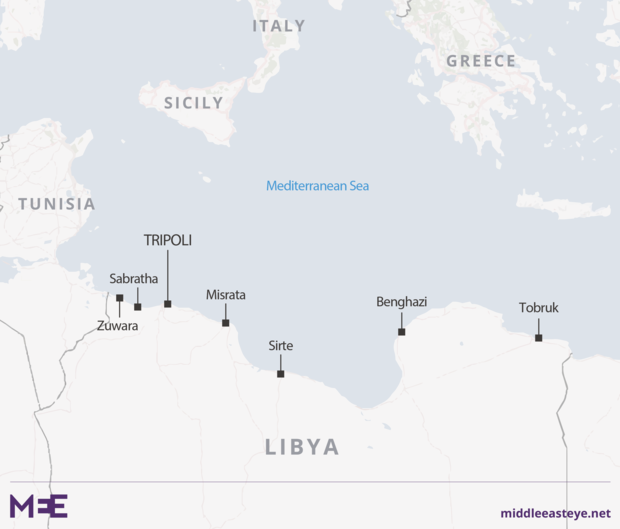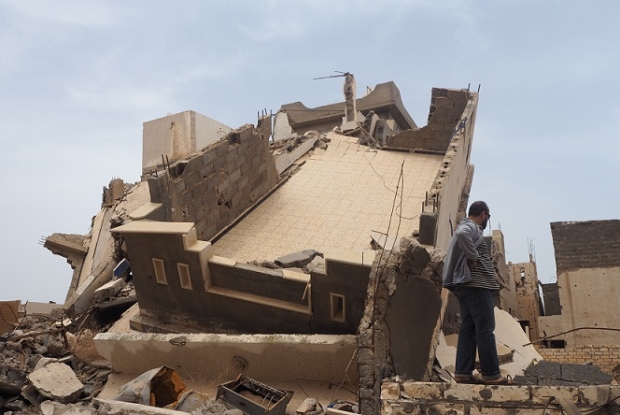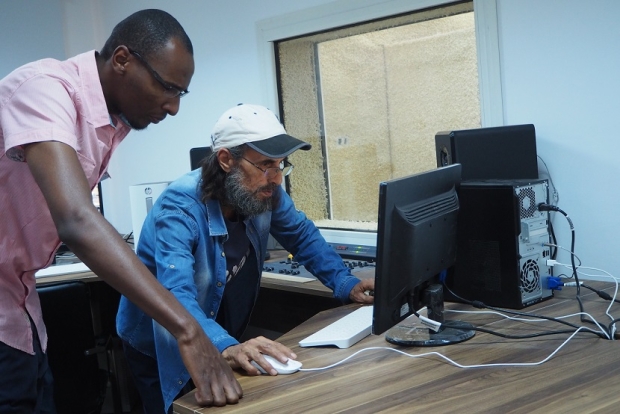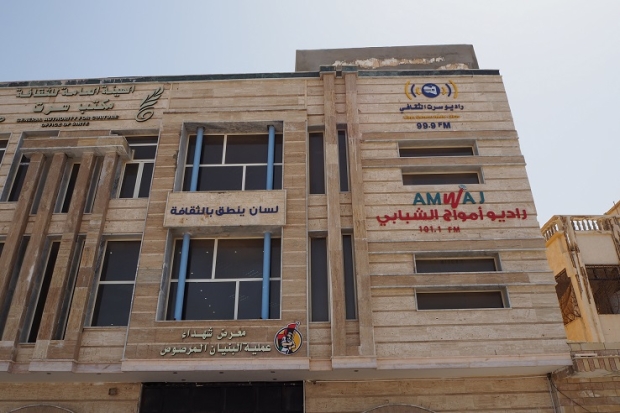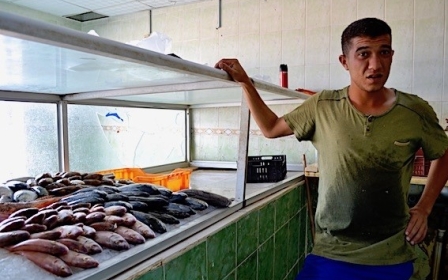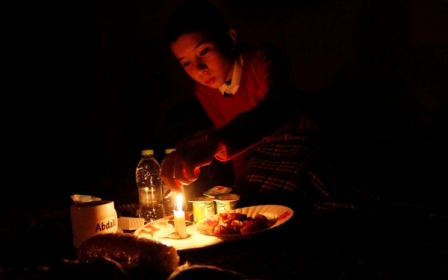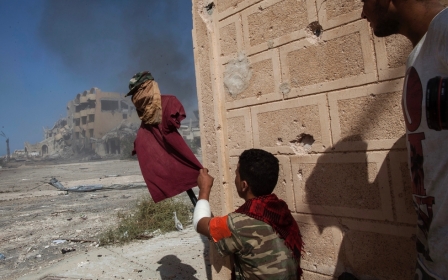Battle for bandwidth: in Libya's Sirte, radio is being used to heal the trauma of war
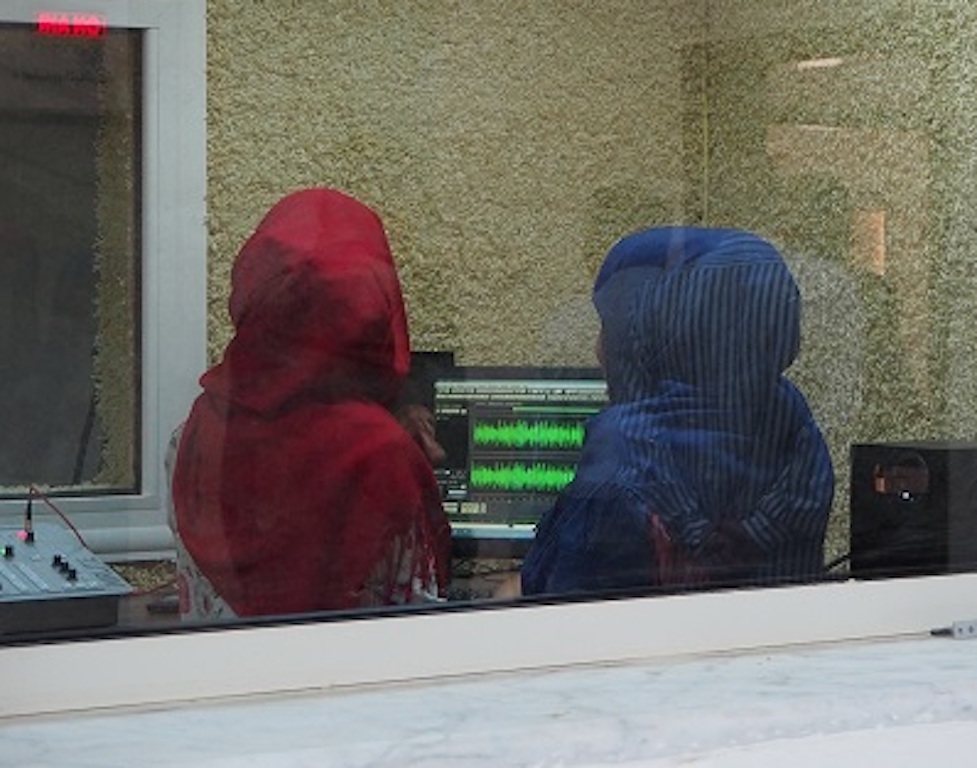
SIRTE, Libya - Bending over the mixing desk in a sparsely furnished studio lined with empty shelves, radio DJ and engineer Abdulsalam bin Sharada fiddles with a few buttons.
The 80s song Live Is Life by the Austrian band Opus fills the room at an ear-splitting volume, and broad grins spread proudly across the faces of volunteers - young and old - working at Sirte’s new radio stations, as feet start tapping along.
'We are always trying to gently and gradually change people’s behaviour away from IS thinking and the culture of war and fighting'
- Alla Fakroum, head of cultural administration in Sirte
The 34-year-old song is popular across Libya, but its upbeat melody and life-affirming lyrics have special resonance for the people of Sirte, who suffered under the Islamic State (IS) group’s brutal rule and endured a six-month battle to liberate the town, leaving extensive destruction.
For a year and a half, after IS seized control of Sirte in early 2015, residents and passing motorists could only listen to the group’s al-Bayan radio station, which took over all airwaves within a 30km radius of the city.
Featuring sermons urging listeners to take up arms against local and Western governments and wage jihad in foreign countries, while listing IS victories across the so-called caliphate, the only “music” the station played was nasheed - religious chanting without instruments.
Strict Islamic codes of conduct and dress were also imposed, especially on young people, and simple pleasures such as music, smoking, internet usage and telephone communications were banned.
Sirte was liberated in December 2016, but local teachers and culture authority officials say the greater battle is now under way - to deradicalise the minds of the town’s young people, some of whom have been brainwashed with dangerous ideologies, and ease the trauma of war.
Amwaj Youth Radio and Sirte Culture Radio, the new radio stations housed in the town’s new general authority for culture building beside a flattened seafront district, not only symbolise Sirte’s re-found freedom but, they say, is a valuable tool in helping deradicalise Sirte’s youth.
“We are dedicated to our goal of changing the mentality of our young people and this is one of the main purposes of the radio stations, where we are transmitting entertaining programmes encouraging peace, prosperity and optimism, as well as music,” Alla Fakroum, head of cultural administration for Sirte, told Middle East Eye.
“Our priority is helping our children psychologically, and we think very carefully about everything we transmit because people are very sensitive after the war, so we are always trying to gently and gradually change people’s behaviour away from IS thinking and the culture of war and fighting.”The presence of IS sleeper cells south of Sirte indicates the terror group could try to infiltrate the town again, he said, adding that without significant deradicalisation efforts Sirte’s youth remained vulnerable to extremist ideologies.
Brainwashing classes
Sirte’s children and young people have been left traumatised by war and IS rule, which teachers say is evident in their daily behaviour.
“Everyone who remained inside Sirte under IS was forced to attend brainwashing classes and IS took over schools and gave classes on how to fight and how to kill,” secondary school teacher Aimen Ducali told MEE.
'It's become normal for students to carry weapons, so when they fight they sometimes shoot each other with pistols'
- Aimen Ducali, secondary school teacher in Sirte
Young men in and beyond Sirte were being brainwashed even before IS took control, with widespread distribution of violent and bloody IS recruitment videos on CDs and USB sticks.
“In secondary schools here, it’s become normal for students to carry weapons, so when they fight they sometimes shoot each other with pistols, and even the younger children all have toy weapons and play with these as if they are re-enacting scenes from the war,” Ducali said.
“The troubles here - the wars and IS - have taught children to be very aggressive and violent, and created a very bad mentality, so we have to try and alter their mindset.”
But with chronic overcrowding teachers say they struggle to offer meaningful help, especially to troubled individuals.
With many schools left destroyed by war, class sizes have doubled, with up to 50 pupils now in each class.
Bullying and violence have become commonplace, and in art lessons even young children often depict weapons, soldiers, dead bodies and figures lying in pools of blood in their drawings.
Limited support
Some help is being provided by international NGOs such as the UN's children’s agency, UNICEF.
“Through a local partner UNICEF has been providing educational support for children who have been affected by the conflict, running catch-up classes, training teachers and delivering mine-risk education,” said UNICEF regional head of communications Juliette Touma.
She said UNICEF was working with the local municipality in Sirte to renovate damaged schools and install prefabricated classrooms to overcome overcrowding.
'We had meetings with the Libyan government, the military, and representatives from the UN and the international community, and they promised a lot but, until now, we have seen nothing'
- Alla Fakroum, head of cultural administration in Sirte
According to Touma, the agency has installed 30 prefabricated classrooms and rehabilitated water and sanitation facilities in 13 schools in Sirte, benefiting more than 6,000 pupils.
But with Libya still fiercely divided along political and tribal alliances, help is not always well received.
After prefabricated classrooms were delivered to an area on the outskirts of Sirte which remains a bastion of pro-Gaddafi sentiment, and where some IS sleeper cells are also believed to be located, unknown gunmen opened fire on the empty classrooms, a local NGO representative working on the project told MEE.
“At the beginning of the battle, we had meetings with the Libyan government, the military, and representatives from the UN and the international community, and they promised a lot but, until now, we have seen nothing, no help at all,” said Fakroum.
“They promised to rebuild the city as soon as the war finished but, nearly two years later, three whole districts are still completely destroyed and 3,000 families remain unaccounted for.”
Although the GNA’s education and culture ministries funded the refurbishment of the new general authority for culture’s building, establishing the radio stations has been largely supported by funds from the Misrata-based military operation that liberated Sirte - Bunyan al-Marsous.
“We urgently need places of entertainment to deradicalise our children and help normalise their minds, but we are struggling because we have received no support or financial aid for such projects,” said teacher Ducali.
Along with the new radio stations, the general authority for culture hopes to open cinemas and theatres to provide young people with places where they can enjoy ordinary entertainments in a safe environment.
Such projects would be largely started from scratch because most cinemas and theatres across the country were closed during the eccentric rule of Gaddafi, who harboured a grave mistrust of Western influences.
So far, the two radio stations are the only projects they have been able to get off the ground, but officials remain determined to help alter the mindset and improve the futures of Sirte’s youth in any way they can, especially through the radio stations.
Fakroum said their latest project is preparing a series of English-language learning programmes, to help boost the town’s struggling education systems.
New MEE newsletter: Jerusalem Dispatch
Sign up to get the latest insights and analysis on Israel-Palestine, alongside Turkey Unpacked and other MEE newsletters
Middle East Eye delivers independent and unrivalled coverage and analysis of the Middle East, North Africa and beyond. To learn more about republishing this content and the associated fees, please fill out this form. More about MEE can be found here.


